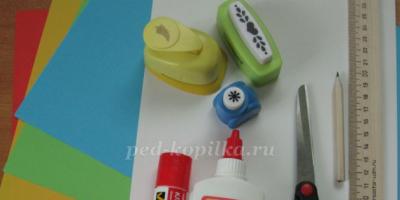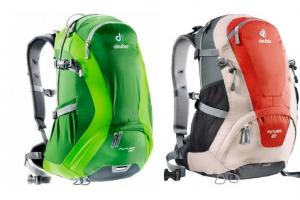Caring for bedridden patients at home is a complex task with its own specifics. Modern means for the rehabilitation of bedridden patients can facilitate its solution, making the life of such people more comfortable.
First of all, a person caring for a bedridden patient needs to be able to correctly:
- use disposable hygiene products;
- take care of the skin of the patient;
- move the position of the patient on the bed.
Constant stay in a supine position contributes to the occurrence of bedsores. If at the same time the patient suffers from fecal and urinary incontinence, then there is a risk of more severe skin lesions. And it is hygiene products for the care of bedridden patients that allow them to be clean. If you are faced with the need to care for a patient at home, then they must be purchased without fail.
The range of the online store "Brigita"
In our online store you can order products for the care of bedridden patients:
- Washing lotion. With it, you can carry out a complete treatment of the skin. The lotion itself does not need to be washed off, it is enough to blot the treated areas with a clean towel after wiping.
- Cleansing foam. It is necessary for hygiene procedures in case of skin contamination, for example, when changing diapers. With the use of foam, you do not need the use of water and detergents.
- Cream. They restore skin elasticity and have a softening effect. Protective cream protects the skin from the aggressive effects of natural secretions under the diaper. The effect of the cream lasts up to 6 hours.
- Skin care oil. This is a product for dry, itchy skin that has a moisturizing effect, does not leave streaks and greasy spots. good reviews use oils and balms from the manufacturer Senya to care for dry skin.
- Wet sanitary napkins for body care, especially for intimate areas. With the help of these funds, you can save the patient from itching, discomfort and irritation in problem areas of the skin.
- Anti-decubitus pad for the prevention and treatment of pressure sores in the buttocks and sacrum. It is a hollow rubber bag of a rounded shape, into which air is pumped. The circle is placed under the back so that the places where there are or may appear bedsores are in the zone of its opening.
You can find a complete list of products for the care of bedridden patients below. If you need advice about any means or preparations, call us by phone or send a request by e-mail.
The skin protects the body from pathogens and helps the body regulate its temperature. But only clear skin! If you do not regularly wash off dead cells, sweat and dust particles from the skin, then it ceases to perform a protective function and itself becomes a source of problems.
This is especially true for people who are bedridden. Firstly, they are constantly in an unnatural horizontal position, which impairs blood circulation. Secondly, bedridden patients often suffer from urinary and fecal incontinence, which contributes to the appearance of irritation and bedsores. Therefore, the hygiene of a bedridden patient should be performed regularly and with the help of special means.
Why regular soap doesn't work
The skin of bedridden patients is sensitive and usually dry (especially in the elderly). Therefore, it is very important that the washing of a bedridden patient takes place in the most gentle mode. Ordinary soap dries the skin, disrupts the acid-base balance and normal microflora. This negatively affects the stratum corneum of the skin, which performs a protective function.
Soap foam should be thoroughly washed off with water, and then wipe the body dry, but wiping can cause discomfort to the patient. And if the soap is not completely washed off, it is deposited on the skin in the form of lime salts of magnesium and calcium, causing itching and irritation. Therefore, it is better to wash a bedridden patient with the help of hospital hygiene products.
Specially formulated alcohol-free, neutral pH (5.5) cleansers for bedridden patients maintain the oil balance of the skin, soften and soothe it. In addition, cosmetic products for skin care of a bedridden patient practically do not smell and do not contain substances that can cause allergies.
What is the difference between washing bedridden patients and ordinary hygiene
Hygiene of a bedridden patient consists of three stages:
- Gentle skin cleansing
- Skin hydration
- Protecting and nourishing the skin
If you simply clean the skin without the use of protective and moisturizing agents, there is a high risk of irritation, especially if the patient suffers from incontinence.
Since it is not always possible to bathe a bedridden patient in a bath (and sometimes it is simply impossible), special detergents are used for skin care that do not require rinsing with water.
Types of means for washing bedridden patients
All skin care products for a bedridden patient are divided into three large categories according to the stage of the hygiene procedure:
- Skin cleansing products (foaming gloves and sponges, washing creams, gels, washing foams, cleansing lotions, wet wipes, shampoos without water, caps for washing your hair without water)
- Skin protection products (creams, tonics, sprays)
- Means for moisturizing and nourishing the skin (oils, lotions, creams)
Means for cleansing the skin of a bedridden patient
Foaming gloves and sponges impregnated with a cleansing gel, which, when wetted with water, whips into foam. Usually one mitten (sponge) is enough to completely wash an adult. In this case, it is not necessary to wash the body with water, it is enough to get wet with a dry towel.
Washing creams cleanse, moisturize and protect the skin (3 in 1). Suitable even for sensitive skin and perineal treatment.
Body foams and gels cleanse and refresh the skin, relieve irritation, neutralize urine and feces odors, have an antibacterial effect, apply and remove with a damp cloth, do not require rinsing with water, do not stain the bed.
Cleansing lotions contain extracts of medicinal plants, gently cleanse and moisturize the skin, have an antibacterial effect, reduce diaper rash. Available in vials and aerosols. Lotions in the form of an aerosol are used to cleanse hard-to-reach places.
Wet wipes are used to cleanse the patient's skin and to apply other products (foams, creams, etc.) to the skin. They are made of soft non-woven fabric impregnated with healing components. Alcohol free, pH neutral. Are issued both for processing of all body, and for intimate hygiene.
Shampoo without water Ready to use, no rinsing or rinsing required. The shampoo is simply applied to the hair and dried with a towel. Even if a little shampoo remains on the hair, it will not affect their condition in any way and will not cause irritation.
Washing caps without water is a shampoo-conditioner 2 and 1, produced in the form of a cap. The cap should be put on the patient's head and massaged with light movements, then remove and wipe the hair with a dry towel.
Skin protection products
Protective cream creates the thinnest film that protects the skin under the diaper from irritant effect urine and feces. Helps prevent bedsores, neutralizes odor.
Protective Tonic has an antiseptic effect, improves blood circulation. As a rule, it contains menthol, which has a cooling effect. Helps prevent bedsores.
Protective spray (skin protector) designed for intensive protection of the skin of a bedridden patient under a diaper. Forms a protective film on the skin, active for 6 hours. The film does not allow urine and feces to irritate the skin.
Means for moisturizing and nourishing the skin
Moisturizing oils soothe, soften dry skin, protect it from dehydration, reduce peeling and irritation, have an antiseptic effect.
Nourishing lotions designed to moisturize, nourish and soften dry, irritated and sensitive skin. They have a long lasting effect.
Moisturizers return moisture to dry and irritated skin, restore its elasticity, nourish, relieve irritation, itching and flaking, do not leave a greasy film.
Prevention of bedsores
It is also an important part of caring for bedridden patients. To combat existing ones and to prevent the occurrence of bedsores, it is recommended to use special anti-decubitus mattresses. You can find detailed information on the selection of such mattresses from.
One of the most important and time-consuming processes of caring for patients who are not able to move independently and serve themselves is to maintain their cleanliness. Not every guardian is able to easily cope with the current situation, not fully understanding how to organize competent hygienic care for his family member.
In order to prevent the occurrence of complications in a bedridden lifestyle (such as bedsores, diaper rash, pustular skin lesions, eye diseases, etc.), you need to know which home care products for bedridden patients prevent their formation.
General hygiene products
Maintain cleanliness of the body, mouth, eyes, ears, intimate areas bedridden patient should become an everyday procedure. The psychological comfort of a bedridden person largely depends on this. To do this, it is not at all necessary to use expensive hygiene products for bedridden patients. In pharmacies, retail and online stores, a wide range of products for care of different price categories are available, available to everyone in need.
For oral care
For the procedure of brushing your teeth, you will need the following hygiene products:
- gloves are sterile, disposable;
- oilcloth or sheet;
- water container;
- toothbrush with soft bristles;
- toothpaste;
- putty knife;
- hygienic cotton swabs;
- sanitary napkins;
- petroleum jelly or any lip moisturizer.
The main item of care for bedridden patients at home when brushing their teeth is a brush with soft bristles, which will prevent damage to the gums (especially in the elderly). When caring for a bedridden patient, Special attention It is worth paying attention to the choice of toothpaste. All pastes for oral hygiene are divided into 3 main categories:
| № | Categories of pastes | Purpose |
| 1. | Actually hygienic | Designed to eliminate soft dental deposits, such as plaque and food debris. The use of these funds is indicated in the absence of pathology of the oral cavity: caries, periodontitis, stomatitis. |
| 2. | Multicomponent medical | Used for patients weighed down by dental pathology. Some antifungal compound toothpastes have been successfully used for bedridden patients with oral candidiasis. |
| 3. | Treatment and prophylactic | Such products contain in their list of components an increased content of trace elements (fluorine and calcium), which maintain the protective characteristics of enamel and prevent the development of caries, which can often be found in a bedridden patient. |

A spatula will be required to fix the oral cavity in a static position, and plaque and food debris are removed with hygienic sticks. For these purposes, it is not recommended to use toothpicks, because. they can damage the gums, which will cause an inflammatory process.
Vaseline or nutritious cream- means for bedridden patients, necessary for moisturizing the lips after the procedure of brushing your teeth.
Hair wash
It is believed that one of the most difficult manipulations for caring for a bedridden patient is shampooing. However, there are now on sale, which greatly facilitate this procedure. Special detergents are also sold, thanks to which the issue of cleanliness of the hair of a bedridden patient will cease to be a problem.
A bath for washing hair in bed is one of the most necessary hygiene products for caring for a bedridden patient. It is an inflatable container with a headrest, in which the head is conveniently fixed without load on the shoulder girdle. The set of such a bath necessarily includes a hose, which, connecting to the hole for draining the water, allows you to empty the bath without any hassle.

Competent hygiene for bedridden patients is carried out by choosing the right detergent, i.e. shampoo. A high-quality shampoo should have excellent moisturizing and nourishing properties, be hypoallergenic and gentle on the scalp. For the elderly and those with weakened immune systems, shampoos containing urea, which regulates the process of natural change of the epidermis, are suitable.
Patients with short hair you can use special dry shampoos that do not require water when used. This is an aerosol bottle that, when sprayed on the scalp, absorbs all settled dirt and grease from the hair and is easily removed with a comb. Such a hygienic care product for bedridden patients is convenient at home if there is not enough time for a full head wash.
Also, with a limited amount of water, special caps are used for washing hair - very convenient individual hygienic care products for bedridden patients. They are also used in situations where the patient is opposed to someone else touching his head. The cap contains a special gel, or shampoo with conditioner, which cleanses the hair without water.
For nail treatment
Hygiene for bedridden patients in this case does not differ fundamentally from the usual methods of processing fingers and toes. Nails should be neatly trimmed, filed, disinfected and treated with a moisturizer.
Instead of scissors, you can use manicure and pedicure nippers big size. They are stronger and sharper due to their massiveness, which greatly simplifies the process of cutting.

The choice of nail file depends on the thickness of the nails. Each file has its own grit index (degree of abrasiveness). The thicker the nails, the larger the number should be. For the care of a bedridden patient, a file with a range of 180 - 240 grit is suitable.
Important! All devices for processing nails must be individual. After each procedure, they must be disinfected.
Since the nails of bedridden patients are often affected by the fungus, they become quite hard. In this case, it is necessary to treat them with hygienic antifungal creams such as Bifosin or Nogtivit, which quickly get rid of the fungus and soften the nail plate.
An alternative to pharmacy antifungal drugs is a bath with tar soap, which has a good softening effect on nails. This can be a good hygienic means of caring for the nails of a bedridden patient.

For eye care
A bedridden patient often cannot control the cleanliness of his own eyes, so one of the tasks of loved ones is to pay attention to these parts of the body. To wash the eyes from hygiene products for the care of bedridden patients at home, you will need:
- cotton pad;
- saline;
- antiseptic solutions;
- decoctions of herbs.
Instead of plain water it is better to purchase saline at the nearest pharmacy, because. it is softer than running water. When there is discharge from the eyes, it is enough effective means there will be solutions with chlorhexidine, boric acid or furacilin.

Mote in the eye can cause considerable discomfort to a bedridden patient, and a good remedy a simple napkin dipped in tea leaves or in a mild saline solution can come out here. Supporters of herbal medicine will respect such hygiene products as a decoction of chamomile, dill juice, rosehip infusion, lotions from bay leaves, drops from propolis water or honey.
Important! Using decoctions of herbs and bee products for the treatment of mucous membranes, make sure that the patient is not allergic to these agents.
For ear treatment
When caring for a bedridden patient, do not forget about the hygienic treatment of the ears. Most often, cotton swabs are used to clean the ear canals. For both healthy and sick people, this remedy is unproductive, since sulfur can settle deep in the ear, forming sulfur plugs. Therefore, from the means of hygienic cleaning of the ears, aqueous solutions in the form of drops are used. Bedside care products such as hydrogen peroxide and urea peroxide are budgetary and popular methods for cleaning the ear canals. To carry out the entire procedure, it is enough to inject 10 drops of the drug into the ear.
In elderly bedridden patients, deafness is a fairly common occurrence. When using hearing aids, earwax builds up at an accelerated rate. For such patients, there is the drug Remo-Vax in the form of ear drops. It qualitatively removes sulfur deposits and prevents the formation of sulfur plugs. To solve this problem, hygiene products with a surfactant - A-cerumen and Vaxol - have proven themselves well.

Intimate hygiene products
Maintaining the cleanliness of the intimate areas of a bedridden patient is ensured by the use of various devices and hygiene products. Manufacturers are trying to produce such products so that the patient and the person caring for him experience a minimum of physical and psychological discomfort during the delicate procedure for caring for the crotch area of a bedridden patient.
diaper
The diaper is a special hygienic product for the care of bedridden patients, consisting of a fabric that has a high ability to absorb and is used for high-quality and comfortable care of a person.
There are 2 types of diapers - disposable and long-term use. If we make a comparison between these products, then the advantage of disposable diapers over conventional ones is obvious. Due to the porous structure of the material of disposable diapers, the bedridden patient is protected from skin maceration, the formation of bedsores and diaper rash, and the appearance of. This is due to the fact that the composition of such a diaper includes multilayer pressed cellulose. In addition, they more reliably protect the bed from dirt.

Simple diapers made of linen fibers or cotton fabrics are twisted and easily wrinkled, irritate the skin, which leads to the formation of bedsores and diaper rash. In addition, if disposable diapers are disposed of as they get dirty, then ordinary cloth diapers must be washed daily and ironed with a hot iron, which is time consuming.
Important! Hot ironing of reusable diapers is essential to prevent secondary infection.
These are special hygiene products, which are disposable bags that are used for stoma (), communicating with the external environment. When natural is not possible, such a bag is fixed in the hole and collects the outgoing feces. This hygiene product for bedridden care is used very often, and it is important to know what it is.
The colostomy bags differ in components:
- One-component. These are ordinary bags for collecting discharge.
- Two-component. They consist of a special adhesive plate that is attached to the stoma, and then a discharge bag is attached to this plate. The advantage of such a device is that it creates the effect of "second skin". The hygiene of replacing such a colostomy bag for bedridden patients is much more comfortable than usual.

Stoma care products
Stoma care is an important aspect of caring for patients who are unable to relieve themselves naturally. Keeping this area clean will protect against bad odors and prevent infection. The table describes the main stoma care products that are highly desirable for bedridden patients.
| Product name | Method of application and effects |
| Sealing pastes | Used to heal and reduce skin irritation, as well as the formation of a waterproof barrier that improves the fixation of the pouch. |
| Sprays | Designed to facilitate the replacement, removal of the colostomy bag. The composition of the spray painlessly separates adhesive base bag. |
| Purifiers | Hygienic product for quick and effective cleaning of the skin, feces, mucus and pus. |
| Protective film "second skin" | A hygienic liquid is applied to the skin, which evaporates easily, leaving behind a thin elastic film that protects the skin from maceration. Due to the specific basis, the skin "breathes" and there is no severe irritation. |
| Absorbent Powders | Powders are used to prevent skin maceration. This powder is able to collect the discharge, forming a gel layer that protects the skin and improves the fixation of the colostomy bag. |
| Odor neutralizers | Special hygiene chemicals that convert the contents of the stool into a gel, removing unpleasant odors. |

urinals
For urine collection, special hygienic devices are used - urinals, better known as "duck". They are widely used due to their ease of use. As a rule, reusable means for bedridden patients to collect urine are used, as they can be easily sterilized.
Disposable urinals may differ in components:
- one-component;
- two-component;
- three-component.
If a one-component urinal has only one bag for collecting discharge, then its “brothers” have a base with a removable bag and a drainage tube. Through such drainage, hygiene for bedridden patients is easier and more comfortable.
Important! The change of urine and colostomy bags must be done 10-15 minutes after emptying.
Adult diapers
For many of the bedridden patients, either at home or in the hospital, the use of disposable diapers is one of the best solutions to the problem of urination and defecation, as well as a kind of protection from embarrassing situations. It is worth noting that in the absence of nurses, such hygiene products for the care of bedridden patients significantly simplify care.
Diapers for adult bedridden patients are usually made of special soft tissues. They do not have an aggressive effect on skin, non-traumatic, hygienic and hypoallergenic. The value of air conduction of the fabric is also important, since the “breathable” material does not cause irritation and diaper rash in humans. The outer layer has sufficient protective data against moisture accumulating inside. The cellulose content should be as high as possible, as this is the basis of the absorbency of the diaper.

Urological pads
An alternative to using diapers can be urological pads for women and men. These products for bedridden care can be a convenient way out of a delicate situation if the use of diapers causes severe emotional discomfort.
Their main difference from conventional sanitary pads in the rate and volume of urine absorption. Since these pads absorb moisture instantly and provide a more secure fit, the risk of urine leakage is minimized. It is also worth noting that all urological pads are made of hypoallergenic materials, so itching and skin irritation do not occur.

Hygiene products for the prevention of bedsores
Bedsores are a specific complication of a patient's recumbent lifestyle, in which blood and lymph circulation in tissues and muscles is disturbed. Bed sores remain one of the most serious problems in patient care, therefore, along with special anti-decubitus devices (pillows, circles), hygiene products must also be used.
To minimize the risk of pressure sores, the skin of a bedridden patient should be moderately dry and clean. In the hygiene market, the companies Menalind, Seni and Convin have proven themselves, producing hygiene products for treating the skin of bedridden patients:
- Hygienic wet wipes for bedridden patients delicately cleanse the skin and do not injure it.
- Massage oils and moisturizing care products for bedridden patients intensively nourish the skin in case of its excessive dryness, additionally stimulate blood circulation.
- Hygienic cleansing foams replace soap and water and are more gentle on the skin. They clean it, remove odors, do not irritate, thus providing high-quality care.
- Zinc creams have proven themselves in protecting against diaper rash and have gained great popularity among hygiene products for bedridden patients.

Competent hygiene of the bedridden patient is extremely important in general care. It not only gives the patient psychological comfort, but is also a preventive measure to prevent infectious processes.
Video
Means for the care of the sick and the elderly are special tools and devices for people who have lost the ability to move independently, as well as for more convenient performance of actions related to the management of the natural needs of the body.
Funds for the care of bedridden patients are necessary for caring staff, because care requires the use of a variety of products that meet the needs of a person. In our stores and in other sections of the online store you will find the necessary care products for bedridden patients at home and for the elderly: multifunctional medical beds for bedridden patients, hygiene products; goods for the care of bedridden patients; means of facilitating living conditions; anti-decubitus systems; patient care equipment.
The use of special tools will make the patient's life more comfortable. Everything for the care of bedridden patients can be bought in our stores.
Dry closets and accessories
In the absence of a stationary toilet, for example, in the country, in transport, in small shops, etc. you can use these portable sanitation devices, which are quite easy to operate and maintain. It can be installed both at home and in the hospital if it is difficult for the patient to move to a regular toilet.
Diapers, pads, diapers, bibs
"Pampers" for adults, teenagers, disposable panties and pads are made from environmentally friendly raw materials. They are used to maintain the hygiene of a bedridden patient, as well as active people suffering from incontinence. At correct mode wear eliminates unpleasant odors. Models differ in the level of absorbency and size. Dermatologically tested.
Anti-inflammatory, disinfectant plasters and dressings
Sometimes just a sterile gauze bandage on the wound is not enough. There are often cases when the doctor prescribes more serious wound treatment, for example, dressings with medicines: ointment dressings, superabsorbent multilayer wound dressings, calcium alginate dressings, foam dressings, hydrocolloid and hydrogel.
Detergents without water
The products in this section will help cleanse the skin of the body and hair without the use of water. Here you will find dry shampoos, special body wash gels and more. They are suitable for bedridden patients, and will also become indispensable helpers during the shutdown season. hot water.
Vessels and urinals
After operations, during illness and rehabilitation, when strict bed rest is prescribed, and the patient does not have the opportunity to visit the toilet room, all physiological functions occur in the supine position. For this, various sanitary devices are designed. They can be universal, or they can differ: for men and for women.
Goods for visiting hospitals, clinics and medical institutions
To comply with sanitary and epidemiological standards in medical institutions, when visiting them, it is necessary to use special protective equipment: shoe covers, masks, etc. This will prevent the spread of infection in such institutions and help to eliminate complications for the patients themselves!
New: A line of special cosmetics ABENA skin care
Line of cosmetics Seni Care for daily hygiene and care sensitive skin, in particular for the skin of bedridden patients. It is especially recommended for diaper and anatomic diaper users who may experience irritation due to the influence of a humid environment and the harmful effects of substances contained in the urine.
In line Seni Care includes:
- Protective body cream
- Washing body lotion
- Foam for washing and body care
- Body balm for dry skin
- Wet wipes
- latex gloves
Composition foam, lotion and cream enriched with flax biocomplex, which relieves irritation, has a nourishing effect and accelerates the process of epidermis recovery.
Rubber and latex gloves very convenient for patient care when changing diapers and when washing the patient.
Packaged oilcloths placed directly under the patient. Packing 2m is designed to cover the entire area of the bed.
Line of special cosmetics for skin care Hartmann MoliCare Skin (Menalind):


Foaming sponges and mittens, for patient care

Foam sponges- a unique single-use hygiene product. Disposable foam sponges are easy to use.
Gantnet Plus Foam Mitten has 2 active surfaces. The inner and outer sides are thin pressed fiber with double-sided detergent impregnation.
Usage:
Lightly moisten the product and squeeze several times until foam appears. Treat the surface of the body and wash off the foam with water. In the absence of water, you can simply wipe the foam with a towel. In order not to reduce the effectiveness of the sponge, do not dip it completely into the water. With daily use, on the 15th day it is recommended to rinse the body with water.
Sponges impregnated with dermatological gel with skin-friendly pH 5.5, hypoallergenic, tested for use in maintaining personal hygiene.
Cap with shampoo and conditioner Abena Shampoo Cap for washing hair without the use of water









